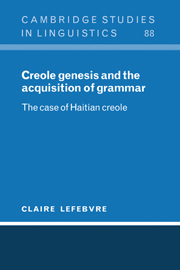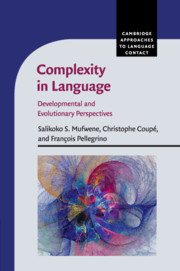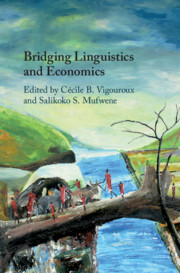The Ecology of Language Evolution
This major 2001 work explores the development of creoles and other new languages, focusing on the conceptual and methodological issues they raise for genetic linguistics. Written by an internationally renowned linguist, the book discusses the nature and significance of internal and external factors or 'ecologies' that bear on the evolution of a language. The book surveys a wide range of examples of changes in the structure, function and vitality of languages, and suggests that similar ecologies have played the same kinds of roles in all cases of language evolution. Drawing on major theories of language formation, macroecology and population genetics, Mufwene proposes a common approach to the development of creoles and other new languages. The Ecology of Language Evolution will be welcomed by students and researchers in sociolinguistics, creolistics, theoretical linguistics and theories of evolution.
- This major work explores the development of creoles and other new languages
- Author is world authority on creole languages
- Will appeal to a wide range of disciplines especially sociolinguistics, creolistics, theoretical linguistics and theories of evolution
Product details
August 2001Hardback
9780521791380
274 pages
229 × 152 × 16 mm
0.54kg
3 b/w illus. 7 maps 6 tables
Available
Table of Contents
- 1. Introduction
- 2. The founder principle in the development of creoles
- 3. The development of American Englishes: factoring contact in and the social bias out
- 4. The legitimate and illegitimate offspring of English
- 5. What research on the development of creoles can contribute to genetic linguistics
- 6. Language contact, evolution and death: how ecology rolls the dice
- 7. Past and recent population movements in Africa: their impact on its linguistic landscape
- 8. Conclusions for the big picture.







